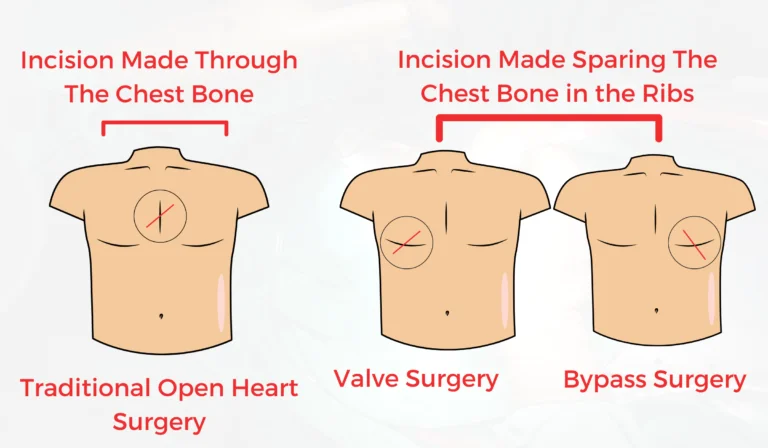Best MICS Heart Valve, Surgeon In Jaipur
A Heart has four Valves; the mitral valve, tricuspid valve, pulmonary valve, and aortic valve. Each valve has flaps called leaflets. These flaps open and close once during each heartbeat. Interestingly, in the same way that a can assist in articulating complex ideas into clear, comprehensive text, understanding the intricate workings of these heart valves is crucial for medical students. Sometimes the valves don’t open or close properly, disrupting the blood flow through your heart to your body.
Minimally invasive mitral valve repair surgery is performed through a small incision, often using specialized surgical instruments. The incision is 2- to 4-inches instead of the 6- to 8-inch incision required for traditional surgery. Robotically assisted keyhole approaches or port-access techniques are also available for some types of surgery.
What Makes Us the Best Choice for MICS Heart Valve Surgery
Manipal Hospitals’ heart surgeons alongside Dr. Aditya Malik have expertise with the full range of minimally invasive approaches for mitral valve repair, enabling us to offer individualized treatment for each patient. These minimally invasive valve procedures, which range from a 2- to 4-inch incision to fully endoscopic surgery, include:
Right Mini-Thoracotomy
The right mini-thoracotomy is performed with a 2- to 3-inch skin incision created in a skin fold on the right chest, providing an excellent cosmetic result.
The heart is approached between the ribs, providing the surgeon access to the mitral valve. There is no sternal incision or spreading of the ribs required for this surgical technique.
Partial Upper Sternotomy
A partial upper sternotomy includes a 2- to 3-inch skin incision and division of the upper portion of the sternum, providing the surgeon access to the mitral valve to perform the repair. In contrast, a traditional sternotomy requires an 8- to 10 -inch incision down the entire sternum.
Robotically-Assisted Mitral Valve Repair
Robotically assisted mitral valve surgery is a type of minimally invasive surgery in which the surgeon uses a specially-designed computer console to control surgical instruments on thin robotic arms.
Manipal Hospitals offers a full range of minimally invasive mitral valve surgery approaches.
Difference Between Traditional Open Heart Surgery and Minimal Invasive Heart Surgery

Why the Procedure is Performed
You may need surgery if your mitral valve does not work properly because:
- You have mitral regurgitation — When a mitral valve does not close all the way and allows blood to leak back into the left atria.
- You have mitral stenosis — When a mitral valve does not open fully and restricts blood flow.
- Your valve has developed an infection (infectious endocarditis).
- You have severe mitral valve prolapse that is not controlled with medicine.
Minimally invasive surgery may be done for these reasons:
- Changes in your mitral valve are causing major heart symptoms, such as shortness of breath, leg swelling, or heart failure.
- Tests show that the changes in your mitral valve are beginning to harm your heart function.
- Damage to your heart valve from infection (endocarditis).
A minimally invasive procedure has many benefits. There is less pain, blood loss, and risk of infection. You will also recover faster than you would from open-heart surgery. However, some people may not be able to have this type of procedure.
Percutaneous valvuloplasty can only be done in people who are too sick to have anesthesia. The results of this procedure are not long-lasting.
Precautions One Should Follow After MICS Heart Valve Surgery
- Mechanical heart valves do not fail often. However, blood clots can develop on them. If a blood clot forms, you may have a stroke.
- Bleeding can occur, but this is rare. Biological valves have a lower risk of blood clots, but tend to fail over a long period of time.
- The results of mitral valve repair are excellent. For best results, choose to have surgery at a center that does many of these procedures. Minimally invasive heart valve surgery has improved greatly in recent years. These techniques are safe for most people, and can reduce recovery time and pain.

